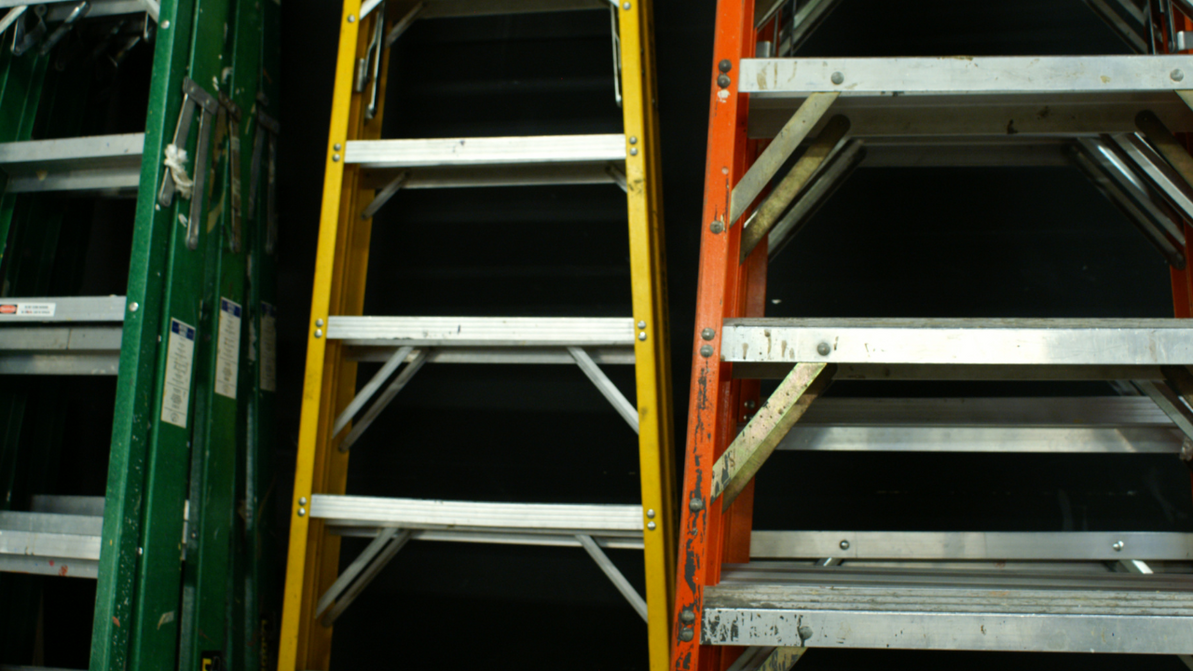Ladders for Trades: Choosing the Best Ladder for Your Trade
When it comes to the trades, having the right tools isn’t just a matter of convenience—it’s a cornerstone of safety and efficiency. For professionals in masonry, painting, electrical work, and other trades, ladders are essential tools that must meet the specific demands of their jobs. In this guide, we’ll explore the best ladder options for different trades, highlighting key features to look for and safety tips to keep in mind.
Masonry: Ladders Built to Withstand the Weight
Masons often work with heavy materials, such as bricks, stones, and tools, so their ladders need to be durable and stable.
- Best Options: Fiberglass or aluminum extension ladders with a high weight capacity (Type I or IA). Scaffolding systems can also complement ladder use for larger projects.
- Key Features:
- Non-slip rungs to prevent accidents.
- Wide bases for added stability.
- Weather-resistant materials to withstand outdoor use.
- Safety Tips:
- Always inspect your ladder for cracks or warping before use.
- Use stabilizers when working at height to minimize movement.
- Never overload your ladder beyond its specified weight limit.
Painting: Versatility and Reach Are Key
Painters need ladders that allow them to reach high walls and ceilings while being easy to move and adjust.
- Best Options: Adjustable step ladders and multi-position ladders.
- Key Features:
- Lightweight for easy transportation.
- Wide platforms for comfort during extended use.
- Adjustable height for versatility in different spaces.
- Safety Tips:
- Keep paint trays and tools secured with built-in ladder attachments.
- Avoid overreaching; reposition the ladder as needed.
- Ensure the ladder is on a stable, level surface before climbing.
Electrical Work: Safety Comes First
Electricians face unique challenges due to the risk of working around live wires. Insulated ladders are a must.
- Best Options: Fiberglass ladders, which are non-conductive and safe for electrical work.
- Key Features:
- Non-conductive materials to protect against electric shocks.
- Rubberized feet to prevent slipping.
- Compact designs for navigating tight spaces.
- Safety Tips:
- Never use metal ladders around electricity.
- Always check for overhead wires before extending your ladder.
- Wear rubber-soled shoes for added traction.
General Tips for Choosing the Right Ladder
No matter your trade, there are universal considerations to keep in mind when selecting a ladder:
- Weight Rating: Choose a ladder that can support your weight plus any tools or materials you’ll carry.
- Height: Ensure your ladder can reach the necessary working height without overextending.
- Material: Fiberglass is ideal for electrical work, while aluminum offers lightweight durability for general use.
- Portability: Consider how easy it is to transport and store your ladder.
Ladder Maintenance and Safety
To keep your ladder in top condition and ensure your safety:
- Inspect your ladder regularly for damage.
- Clean off any paint, dirt, or debris that could cause slipping.
- Store ladders in a dry, secure location to prevent weather-related wear.
- Follow OSHA guidelines for ladder use in the workplace.
Conclusion
Choosing the right ladder for your trade is about more than just meeting the demands of your job; it’s about protecting yourself and others while working efficiently. By understanding the specific needs of your trade and prioritizing safety, you can invest in a ladder that serves you well for years to come. Whether you’re a mason, painter, electrician, or any other trade professional, Southwest Scaffolding has a variety of ladders designed to meet your needs. Explore our collection today to find the perfect fit for your trade.
```Recent Posts
-
Scaffold Fails & Fixes – Episode 3 Overloaded Platforms: When “Just One More Pallet” Goes Too Far
It usually sounds like this: “Set it up there for now.”“It’ll be fine.”“We’re using it today anyway …Mar 4th 2026 -
Scaffold Fails & Fixes – Episode 2 Missing Guardrails: The Most Ignored Hazard on Jobsites
There’s a dangerous phrase in construction: “It’s only for a minute.” Guardrails get left off.Mid- …Mar 3rd 2026 -
Scaffold Fails and Fixes Episode 1: The “Ladder Stack” Disaster
It starts with one sentence: “We just need a little more height.” So someone grabs another ladder. …Mar 2nd 2026




